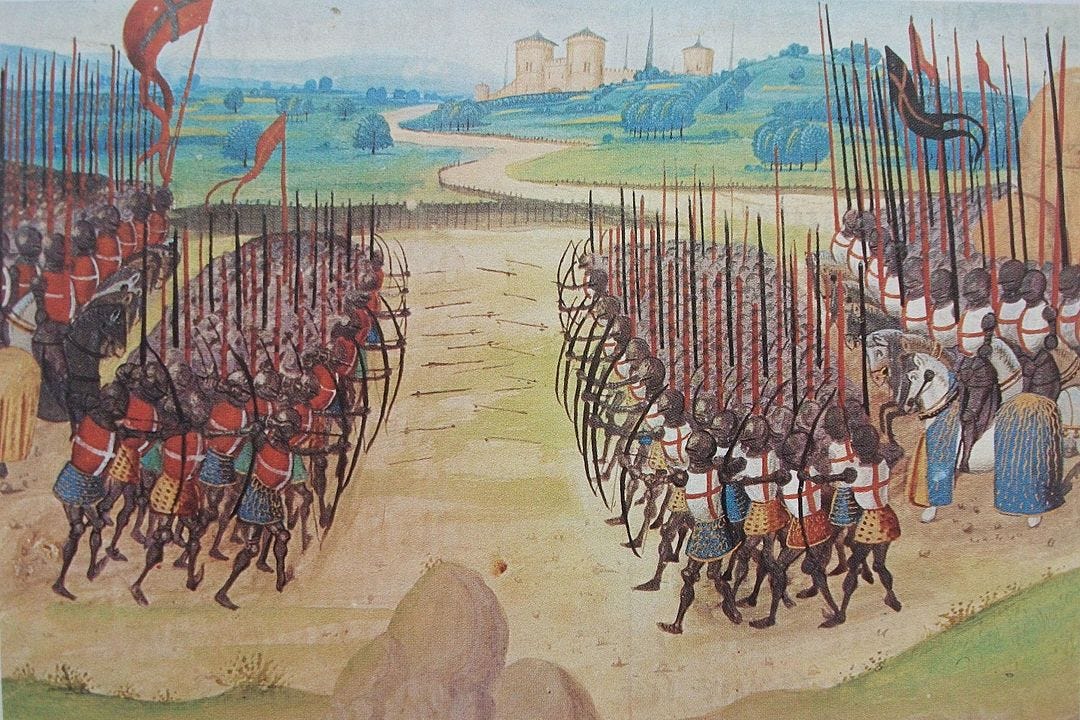We Happy Few
Leadership means standing for a cause and rousing your team.

“But if it be a sin to covet honour,
I am the most offending soul alive.” — William Shakespeare, 1599
My parents taught me to always do what’s right and that standing up for what’s right wouldn’t always be easy.
In fact, doing what’s right might be extremely difficult or awkward when surrounded by people—friends, colleagues, peers—who want to do the exact opposite.
To make a stand and make a choice that is based on principle and honor, particularly when it’s unpopular, can leave you feeling like you're alone.
The Best Hope I Have
Leaders are constantly facing difficult choices. And today, St. Crispin’s Day, it’s relevant to explore why.
In the early 1400s, the English and French were in the middle of the 100 Years’ War. Five generations of kings led these efforts, in a seemingly endless series of battles.
On October 25, 1415, the Battle of Agincourt was waged in northern France. Octob…



